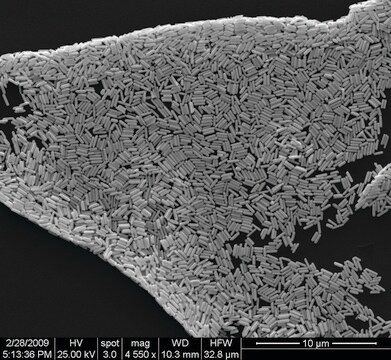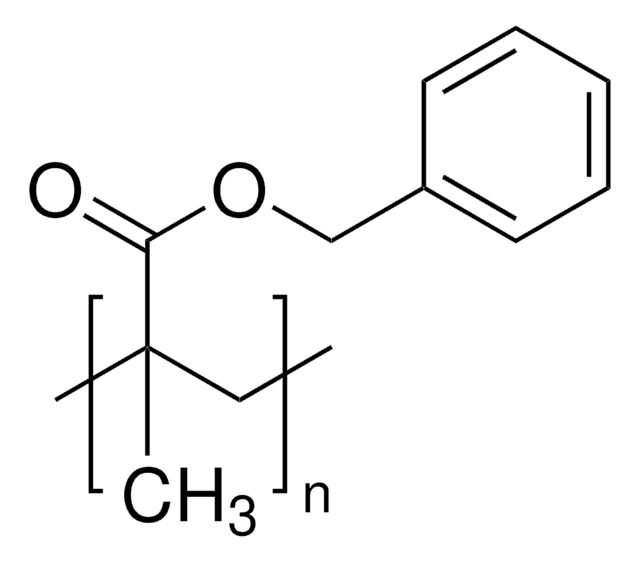Wichtige Dokumente
771651
Gold-Nanostäbchen
25 nm diameter, λmax, 600 nm, dispersion in H2O
Synonym(e):
Au-Nanostäbchen, Gold-Nanostäbchen
About This Item
Empfohlene Produkte
Form
colloidal suspension
dispersion in H2O
nanorod
Qualitätsniveau
Enthält
CTAB as stabilizer
Konzentration
>45 μg/mL in H2O
Durchm. × L
25 nm × 47 nm (±10%)
Durchmesser
25 nm
λmax
600 nm
Mw/Mn
>95 (rods)
Lagertemp.
2-8°C
InChI
1S/Au
InChIKey
PCHJSUWPFVWCPO-UHFFFAOYSA-N
Suchen Sie nach ähnlichen Produkten? Aufrufen Leitfaden zum Produktvergleich
Allgemeine Beschreibung
Anwendung
Leistungsmerkmale und Vorteile
Rechtliche Hinweise
H-Sätze
P-Sätze
Gefahreneinstufungen
Aquatic Chronic 3
Lagerklassenschlüssel
12 - Non Combustible Liquids
WGK
WGK 3
Flammpunkt (°F)
Not applicable
Flammpunkt (°C)
Not applicable
Hier finden Sie alle aktuellen Versionen:
Analysenzertifikate (COA)
Die passende Version wird nicht angezeigt?
Wenn Sie eine bestimmte Version benötigen, können Sie anhand der Lot- oder Chargennummer nach einem spezifischen Zertifikat suchen.
Besitzen Sie dieses Produkt bereits?
In der Dokumentenbibliothek finden Sie die Dokumentation zu den Produkten, die Sie kürzlich erworben haben.
Artikel
Gold nanostructures such as nanorods, nanowires and microgold have found applications in exciting fields such as biomedical engineering, catalysis and diagnostics.
Silver nanomaterials have unique physical, chemical, and optical properties that are currently being leveraged for a wide variety of biological applications.
In many technologies, performance requirements drive device dimensions below the scale of electron mean free paths (λe). This trend has increased scientific interest and technological importance of electrical resistivities at the nanoscale.
Inorganic nanomaterials are tunable by size, shape, structure, and/or composition. Advances in the synthesis of well-defined nanomaterials have enabled control over their unique optical, electronic, and chemical properties stimulating tremendous interest across a wide range of disciplines. This article illuminates some of the recent research advances of inorganic nanoparticles (NPs) in optoelectronics applications.
Unser Team von Wissenschaftlern verfügt über Erfahrung in allen Forschungsbereichen einschließlich Life Science, Materialwissenschaften, chemischer Synthese, Chromatographie, Analytik und vielen mehr..
Setzen Sie sich mit dem technischen Dienst in Verbindung.




